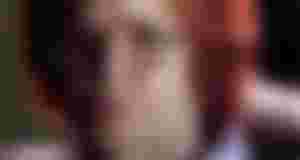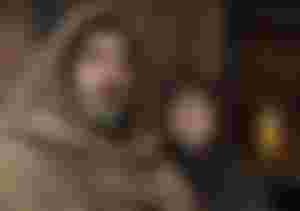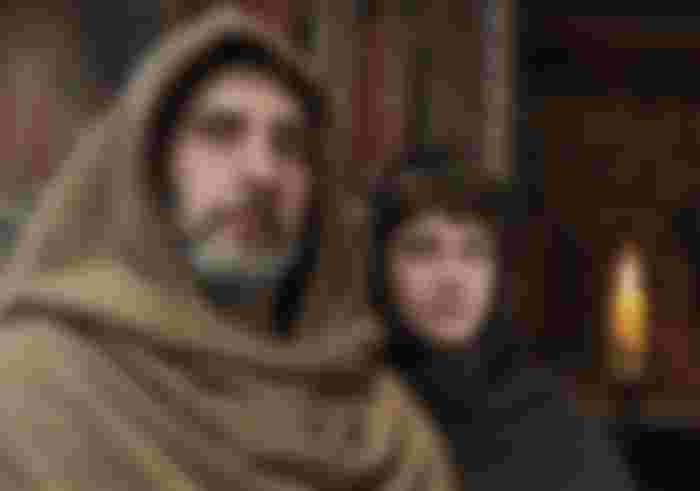(The Library: Book Review) That temperature, in the title, is the temperature at which book paper catches fire. I was recently reminded of that temperature when building a crypto-miner. I put the motherboard straight on a piece of cardboard and wondered if it would combust! But most often, I am reminded of this book for the wrong reasons. This book is a dystopian story which examines the morality of destroying knowledge and censoring free speech. I do recommend this book. In today's society, we are facing those challenges as I write this. Here I want to examine what temperature is required to erase and censor in the digital age?

Pros
Short-read
Well written with emotional attachment to the character
An interesting critique and dystopia, provides a moral compass of its own
Cons
Is not as expansive in its ideas as the recently reviewed Brave New World or 1984
Often called the best book by author Ray Bradbury, Fahrenheit 451 takes place in America's future, 28 years from now (in 2049). It was published in 1953. Obviously, the end of the war and the following cold war are part of the inspiration for Bradbury to write his novel.
Our hero, Guy Montag, is a firemen but unlike today's firemen, those who live in that dystopian society are tasked with burning, not extinguishing the flames. This means that their job is to burn books. Since books auto-ignite at 451 degrees Fahrenheit, we then understand what the title means. It is sad when society puts efforts to destroy knowledge and to silence voices that may hold some truths to be heard.
Mildred
In parallel, and also as a parallel critique to today's society, Guy's wife, Mildred, is oblivious to the difficulties that her husband is going through. She is addicted to sleeping pills, which immediately reminds us of today's opioïd epidemic in America. The concept of Soma (the drug from the novel 1984) is also illustrated here, in those sleeping pills addictions which render people numb and disinterested in fighting for their rights or for what is morally good for their society.
On top of that, her consciousness is absorbed in the lives of others, as illustrated by her addiction to "parlor walls" or their form of flat screen TVs. Binge-watching addictions to watch other people's live is part of the problem. The author describes Montag's wife like this: "thin as a praying mantis from dieting, her hair burnt by chemicals to a brittle straw, and her flesh like white bacon." This brings to my mind's eye the immediate image of Sara Goldfarb in the film "Requiem for a Dream".

I include here only a single image of her and I did not pick the most disturbing ones but if you have seen the movie, you will understand the similarities between those two characters who have lost a sense of who they are in this world. Finding pleasure in watching other people's lives play out and dreaming about how we could be great without putting the necessary efforts is part of the criticism here.
Contradicting Facts and Opinions
Montag's boss, the Captain by the name of Beatty used to love reading books. But he then learned to hate them - because of "unpleasant content and contradicting facts and opinions". I wrote about this in the past and has not changed an iota: Diverging facts, different opinions and various viewpoints are to be cherished, not banned, ostracised and censored.
I my recent article Seeking Truth, I have examined how difficult it is to find the truth. Many realities are complex and to a casual observer, a particular viewpoint might make sense. But from a different observer's point of view, facts are different.
I had a discussion not so long ago with someone about some new classes that were appearing in America to teach the young about conspiracy theories. The person I was talking with gave me what she considered to be a good example: "The Earth is Flat conspiracy". I will write another article another time to explore conspiracies and what to make of them. Not all of them are to be disregarded a priori.
For sure, to outright erase theories because they examine the possibilities of conspiracies would be to do humanity a big disservice. The only way to find out what is happening in this world is to figure out what is not being said. The best way to stay ignorant - and ignorance is bliss - , as exemplified in the book by the character of Mildred, is to decide to burn knowledge that we disagree with.

Today, our society faces an even greater challenge as the temperature itself has gone way down. Firemen are not even required to burn today's knowledge. We live in the digital age!
Erasing knowledge in the digital Era
With today's increasingly numerical knowledge, thanks to information theory, we have gained powerful once dreamt by the philosophers of old. Tell them of an information system capable of sorting trillions of bytes and able to store and retrieve the knowledge of all mankind in a small box and they would marvel at our technological progress.
With that progress, mankind has given itself an insurance policy against knowledge loss. It is now more difficult to eradicate knowledge than it was before, given our new capabilities at information storage, compression and decentralisation. But even if copying mp3 and DVDs is today easier than it ever was, the problem we know face is that of censorship of thought.
I can understand websites for moderating content. Only a tiny fringe of society wants to see atrocities or torture in graphic pictures. And I know that the line can be fine in some cases. But consider how wide the gap is between censoring a paedophilia porn film with censoring the "Plandemic" video. This is where censorship goes too far. This is where the realm of morally acceptable yet different opinions gets removed because we don't want people to think for themselves.
To ban, censor, block and erase past history to make it fit with a political messages or to have a more politically acceptable presentation is to erase our diversity, past, present and (possibly) future. It is that type of thought that led humanity to burn books for real. At least, if the even in the film "The Name of the Rose" are true, then the Church kept the books in the Index Librorum Prohibitorum, it did not burn them as in Fahrenheit 451.

However, mankind has been there already. We did already have a McCarthyism which dealt with making unfounded accusations of subversion and treason. That led people to hold back what they would have said otherwise. Civilisations as old as China under Emperor Qin Shi Huang were already burning books circa 213 B.C. to consolidate power.
Numerous scholars much better suited than myself for that task have catalogued our book burning and knowledge destroying appetite over the years. Take a look at Rebecca Knuth, the author of Libricide: The Regime-Sponsored Destruction of Books and Libraries in the Twentieth Century and Burning Books and Leveling Libraries: Extremist Violence and Cultural Destruction. Also check out Richard Ovenden's book on the same topic. Their conclusions are alarming; Often, cultures that engaged in book burning did it as they felt like victims themselves.
So what temperature is required to erase in the digital age? It is a complex question and more food for thought than real interrogation. Erasing every copy of the "Plandemic" video is difficult with the Internet. But preventing people from seeing it is much easier. The Church did it to protect its power. Today we face digital entities like Facebook and Twitter. The dangers are the same yet not as obvious. Is Amazon hiding certain books and is Google altering search results for more power consolidation, whichever form it might take? Are they nowadays also banning and censoring in order to consolidate their power? We must be careful to prevent a dystopia like this and like the one in 1984. But there is hope in decentralisation, there is hope in unblockable domains... Most of all, there is hope because you got this far in my review of a book about book burning. Worry not, The Library is well equipped to deal with incoming fire!
As usual, thanks for reading!
Top illustration: (author unknown) https://www.locomotiveonline.com/locomotive/ray-bradbury-on-farenheit-451-and-the-art-of-science-fiction/
Cover illustration: (Steve Crisp for the Grafton publishing edition)
More resources: https://www.activistpost.com/2019/08/the-censorship-of-alternative-media-is-virtual-book-burning.html
Below, photograph of my personal copy:





